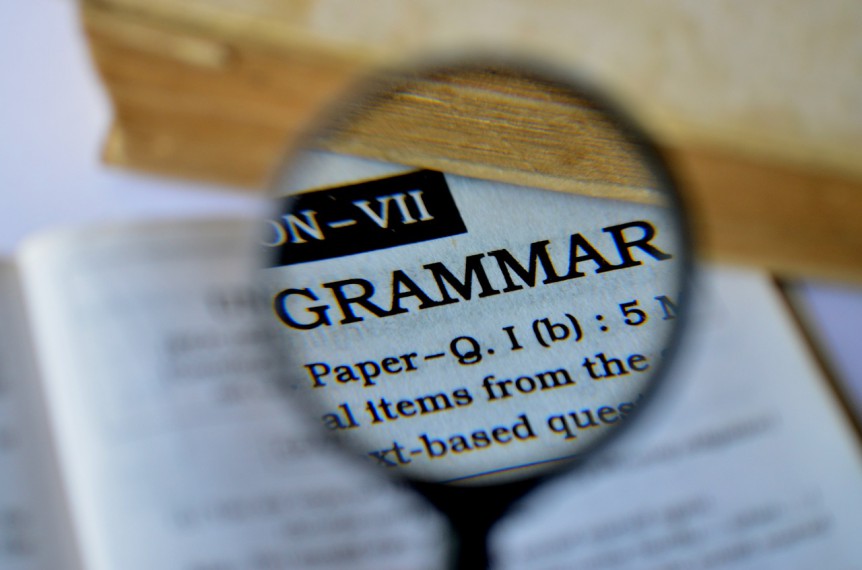A historic or an historic? A university or an university? A MBA or an MBA? A user or an user? If there's even a little doubt about which is correct, there is a simple rule to clear up the confusion.
First, why the confusion?
In grade school, I was taught a simple (but wrong) rule for using a or an:
Use "a" for words that begin with a consonant and "an" for words that begin with vowels.
Although this rule is correct for a lot of words, the actual rule has very little to do with how a word is spelled. The rule has everything to do with how the word is pronounced:
Use "a" for words that begin with a consonant sound and "an" for words that begin with a vowel sound.
Common questions
Question: A historic or an historic?
Answer: A historic. The word historic is pronounced with an H sound. In this case, the H sound is a consonant sound.
Question: A university or an university?
Answer: A university. Although U is a vowel, the pronunciation of university begins with a Y sound (you-nee-...) which is a consonant sound.
Question: A MBA or an MBA?
Answer: Both. If you pronounce the acronym as em-bee-ey, you should use an, since it's pronounced with a vowel sound. However, if you expand the acronym to Master of Business Administration, you should use a, since master is pronounced with a consonant M sound. Although the former is more commonly used, both are acceptable.
Question: A user or an user?
Answer: A user. Although U is a vowel, the pronunciation of user begins with a Y sound (you-zer) which is a consonant sound.
Question: A hotel or an hotel?
Answer: A hotel. The word hotel is pronounced with an H sound. In this case, the H sound is a consonant sound.
Tough questions
Question: A one or an one?
Answer: A one. The word one is pronounced with a W sound. In this case, the W sound is a consonant sound.
Question: A useful or an useful?
Answer: A useful. Although U is a vowel, the pronunciation of useful begins with a Y sound (yoos-ful) which is a consonant sound.
Question: A email or an email?
Answer: An email. The pronunciation of the word email begins with an eee sound. This is a vowel sound.
Question: A or an before s-words?
Answer: It depends. For a simple word like secure, you should use a secure, since its pronunciation begins with an S consonant sound. For a more complex example like SSH, you should go through the same thought process as in the MBA question. You could go either way for SSH. However, the more common usage is an SSH.
Question: A or an before x-words?
Answer: It depends again. For a simple word like xylophone, you should use a xylophone, since its pronunciation begins with an Z consonant sound. For a more complex example like x-ray, you should pronounce the word: ex-ray. Its pronunciation begins with a vowel sound, so its usage is an x-ray.
Trick question
Question: A honest or an honest?
Answer: An honest. Did I catch you? The word honest begins with an H which is a consonant. However, it is pronounced onest. That's right... its pronunciation begins with a vowel sound.
Let your ear decide
The old grade school rule works most of the time for two reasons:
- The spelling of most words that begin with a consonant are pronounced with a consonant sound.
- The same is true for words that begin with a vowel -- they are pronounced with a vowel sound.
However, the examples given above show the spelling of some words that begin with a consonant are pronounced with a vowel sound. Some that begin with a vowel are pronounced with a consonant sound. So when all else fails, say the word aloud, and let your ear decide whether it begins with a consonant or a vowel.


Comments 20
amazing…very helpful….
Great! Thanks very much.
Glad you liked it!
Excelent content!
Thank you!
thank you. your post is very helpful 🙂
@jane: Glad you found it helpful!
Pingback: Mystery Solved: Here’s When You Should Use The Articles “A” And “An” | Writers' Coast
Thank you Raymond.
I also used to follow this rule – ‘Use “a” for words that begin with a consonant and “an” for words that begin with vowels.’ But, your post helped me to understand the usage. 🙂
Glad it helped! 🙂
Thank you 😁
Thank you! Your post helped me a lot in my study!
Simple and enlightening! Congratulations!!
Very helpful, thanks for you help with this! I have trouble sometimes when I am writing on my blog but this helps clear everything up 100%!! Me and my readers thank you!
I have been using the old rule, thank you so much
An fb post? or A fb post?? 😊
EMAIL: a yee-mail, surely.
Thanks for everything
😊😊😊😊😊
Thanks for a lively tutorial on the correct use of indefinite article with nouns. Old timers will remember yon days in their high schools when they used to see the martinet of the English language teacher enter the class with Wren & Martin in hand and with Mr Squeers’ penchant for driving home the subtler aspects of English grammar the hard way the wards will never forget. Hope your way of explaining the significance of the articles ‘a’ and ‘an ‘will register in the minds indelibly…
It’s really helpful. Thank you ☺️☺️
Pingback: A Or An University? Trust The Answer - Autisticchiangmai.org